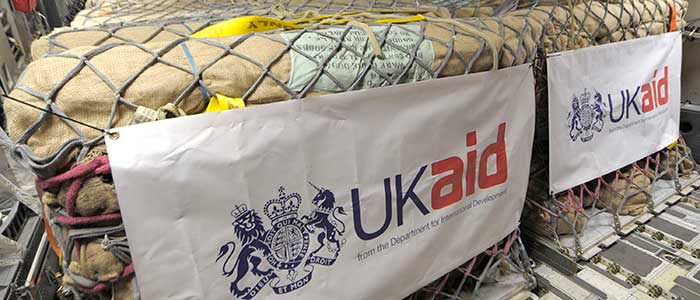Priti Patel, the UK’s secretary of state for international development, defended a proposed bill to increase the spending limit for the CDC Group to £6bn, as MPs debated its merits in parliament yesterday.
The spending limit for the UK's Department for International Development's investments in the firm, which it wholly owns, was set at £1.5bn 17 years ago. This was reached last year when parliament approved a £735m cash injection.
Patel, who has proven a controversial figure since she took office in the summer, wants to increase that limit by at least four times, with the option to up it again to £12bn – equal to the entire aid budget in 2015 – with parliamentary approval.
In a statement yesterday, she argued the CDC’s efforts to invest in difficult frontier markets could catalyse further private sector interest, create jobs, boost economies and help countries lift themselves out of aid dependency.
But the proposals have outraged critics who point to the CDC’s chequered history. A report by the country’s National Audit Office, published yesterday, confirmed there had been improvements at the CDC in recent years but said it still remains a “significant challenge” to demonstrate that the CDC helps those in poverty.
MPs pointed out that most of the CDC’s top investment destinations – including India and China – are huge and fast growing economies that have little trouble attracting private investment.
Stephen Doughty, a Labour and Cooperative party MP who has been a staunch critic of the proposals, pointed out that a “little noticed” change to reporting aid spend would mean a substantial increase in funding for the CDC could be reported as official aid, “regardless of which country or sector it ends up in, let alone whether it resulted in a net flow of resources to the poorest countries”.
Previously, official aid attributed to the CDC was marked as the net benefit its investments had for developing countries, calculated by subtracting the returns flowing back to the CDC from the money it invested.
This resulted in positive contributions to aid spending, which ranged from £228m in 2010 to £42m in 2014.
In 2015, however, reporting by this measure would have resulted in a negative contribution to the aid budget of £9m. Instead, DFID reported the total capital flow from the government to the CDC as official aid. This resulted in a £450m contribution to the aid budget, rather than minus £9m.
“[This] would allow the secretary of state to classify the entirety of future capital increases to the CDC as [official aid], potentially diverting, and effectively privatising, up to £12bn of our future aid via the CDC. This is particularly important, given the different focuses and priorities of the CDC,” Doughty said.
Patel has stressed that the bill does not commit to increasing financial support to the CDC and that DFID will only invest in CDC when this will “continue to achieve value for money, have a clear development impact for the poorest and deliver in the UK’s national interest”.
During the debate yesterday, she also said not all the money will be used immediately and that even if it was used by 2020, it would only represent 8% of the total aid budget during that time.
Doughty pointed out that the CDC has only needed £1.5bn to expand significantly between 1999 and 2015, a large portion of which was given last year.
“[Explanatory notes submitted by Patel to accompany the bill] could imply giving three times extra to the CDC in three to four years – £4.5bn – than it has needed in the last 17 years,” he noted.
The UK economy is expected to slow in the coming years, which will in turn shrink the aid budget, as it is linked to gross national income. Other MPs also expressed concerns about whether such increased spending for the CDC is wise in this context, or asked whether it would be more appropriate to express increased finance for the firm as a percentage to reflect this.
Also in the British parliament yesterday, chancellor Philip Hammond said that if the aid budget does need to be trimmed, he will not protect DFID’s budget above other aid-spending departments.
“We will look to take away the lowest-value [aid] spending. I think that is the way the taxpayer would expect it to be done.”














